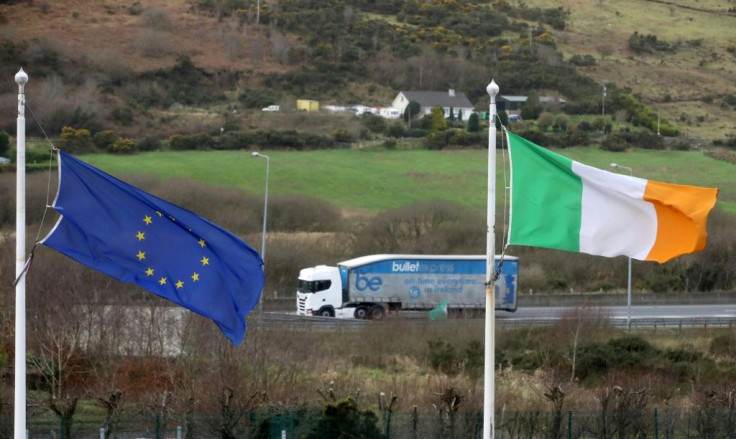Irish Leaders Welcome UK-EU Brexit Deal On N.Ireland
Britain and the European Union on Tuesday announced a deal to manage post-Brexit trade with Northern Ireland, which will have the UK's only land border with the bloc from next year.
Irish leaders welcomed comments from senior UK minister Michael Gove and European Commission vice president Maros Sefcovic that agreement had been made "in principle" to cover border arrangements.
The deal, after talks between the pair in Brussels on Monday, will see London cut three controversial clauses in a bill that would have denied Brussels a say in future trading arrangements between the province and EU member Ireland.
That could in turn lighten the fraught atmosphere facing Prime Minister Boris Johnson when he heads to Brussels this week for wider talks to try to clinch an elusive trade pact with the EU.
Irish prime minister Micheal Martin welcomed the breakthrough announced by Gove and Sefcovic, who co-chair a committee tasked with implementing the UK-EU divorce treaty.
"Protecting the Good Friday Agreement is vital," Martin said, referring to the 1998 peace deal that ended three decades of violence over British rule of Northern Ireland.
Ahead of Johnson's trip, Irish foreign minister Simon Coveney noted the deal had wider implications.
"Of particular significance is the commitment by the UK to withdraw clauses 44, 45 and 47 of the Internal Market Bill bringing it back into line with its obligations under the (EU) Withdrawal Agreement," he said.
"I hope this may also provide some of the positive momentum necessary to instil confidence and trust, and allow progress in the wider context of the future relationship negotiations."

Northern Ireland's border with the Republic of Ireland is meant to stay open in all circumstances as part of the 1998 peace deal.
How to keep the trade border-free, while also ensuring Northern Ireland retains full access to mainland Britain, has been testing the Gove-Sefcovic committee for months, alongside the wider trade negotiations.
Their agreement covers arrangements for goods passing from mainland Britain to Northern Ireland, and onwards to the EU's single market via Ireland.
A joint UK-EU statement said it entailed border control posts for checks on animals and plants, export declarations, the supply of medicines, and the supply of food products to supermarkets such as chilled meats.
Retailers have been warning that food supplies in Northern Ireland could run short if post-Brexit complexities restrict imports from the rest of the UK.
The agreement also covers how to define UK state aid for companies in Northern Ireland, a key demand of the EU which has been worried that businesses there could undercut competitors who remain in the single market across the border in Ireland.
It further defines goods considered "at risk" of entering the single market from Britain via Northern Ireland, which in theory are supposed to be subject to new checks after December 31.
Britain had threatened to unilaterally define such products in another item of legislation that will be presented in the House of Commons later Tuesday.
But as well as excising the offending clauses from the Internal Market Bill, the UK said it will "not introduce any similar provisions in the Taxation Bill".
© Copyright AFP 2024. All rights reserved.











